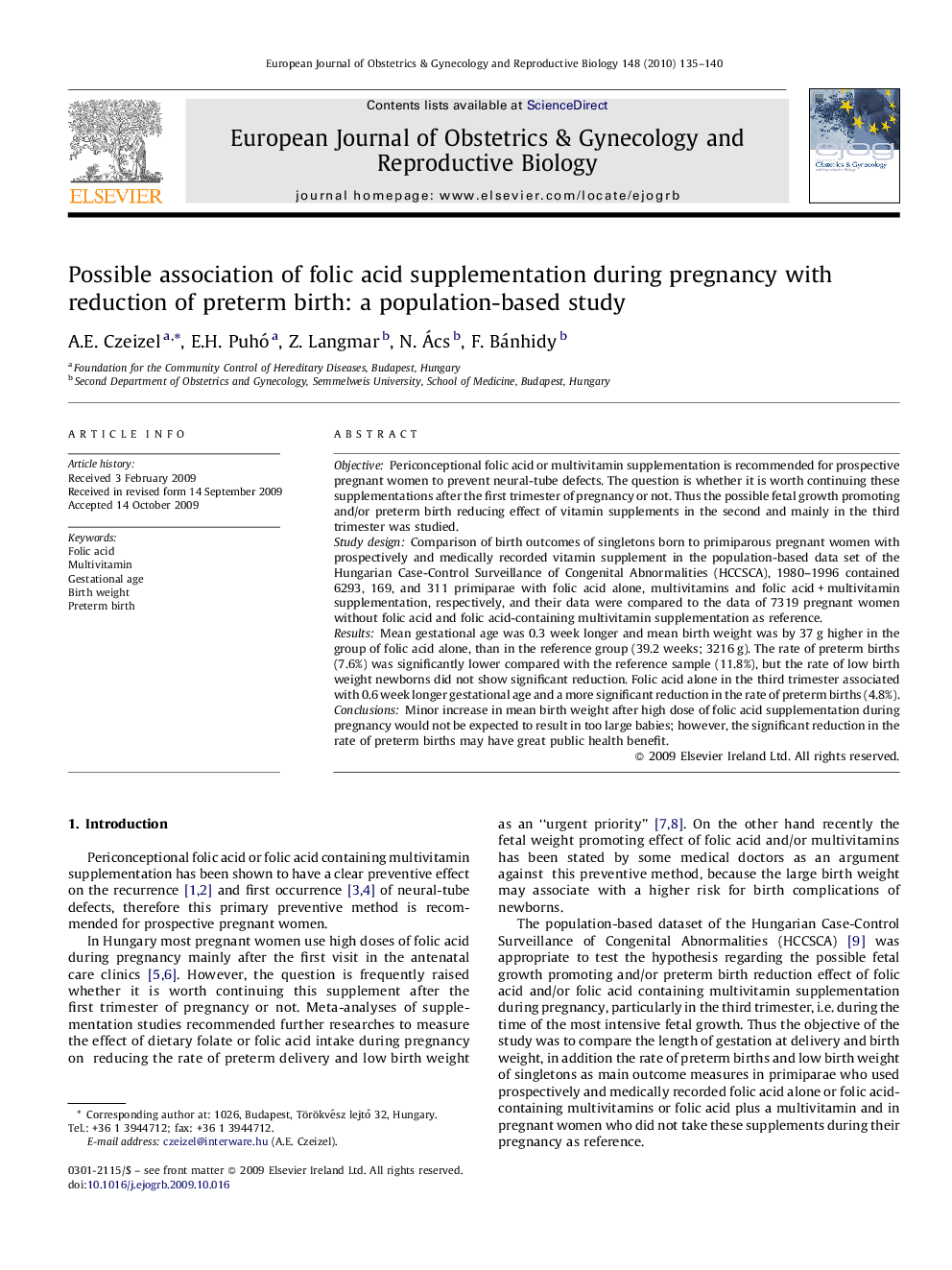| Article ID | Journal | Published Year | Pages | File Type |
|---|---|---|---|---|
| 3920884 | European Journal of Obstetrics & Gynecology and Reproductive Biology | 2010 | 6 Pages |
ObjectivePericonceptional folic acid or multivitamin supplementation is recommended for prospective pregnant women to prevent neural-tube defects. The question is whether it is worth continuing these supplementations after the first trimester of pregnancy or not. Thus the possible fetal growth promoting and/or preterm birth reducing effect of vitamin supplements in the second and mainly in the third trimester was studied.Study designComparison of birth outcomes of singletons born to primiparous pregnant women with prospectively and medically recorded vitamin supplement in the population-based data set of the Hungarian Case-Control Surveillance of Congenital Abnormalities (HCCSCA), 1980–1996 contained 6293, 169, and 311 primiparae with folic acid alone, multivitamins and folic acid + multivitamin supplementation, respectively, and their data were compared to the data of 7319 pregnant women without folic acid and folic acid-containing multivitamin supplementation as reference.ResultsMean gestational age was 0.3 week longer and mean birth weight was by 37 g higher in the group of folic acid alone, than in the reference group (39.2 weeks; 3216 g). The rate of preterm births (7.6%) was significantly lower compared with the reference sample (11.8%), but the rate of low birth weight newborns did not show significant reduction. Folic acid alone in the third trimester associated with 0.6 week longer gestational age and a more significant reduction in the rate of preterm births (4.8%).ConclusionsMinor increase in mean birth weight after high dose of folic acid supplementation during pregnancy would not be expected to result in too large babies; however, the significant reduction in the rate of preterm births may have great public health benefit.
